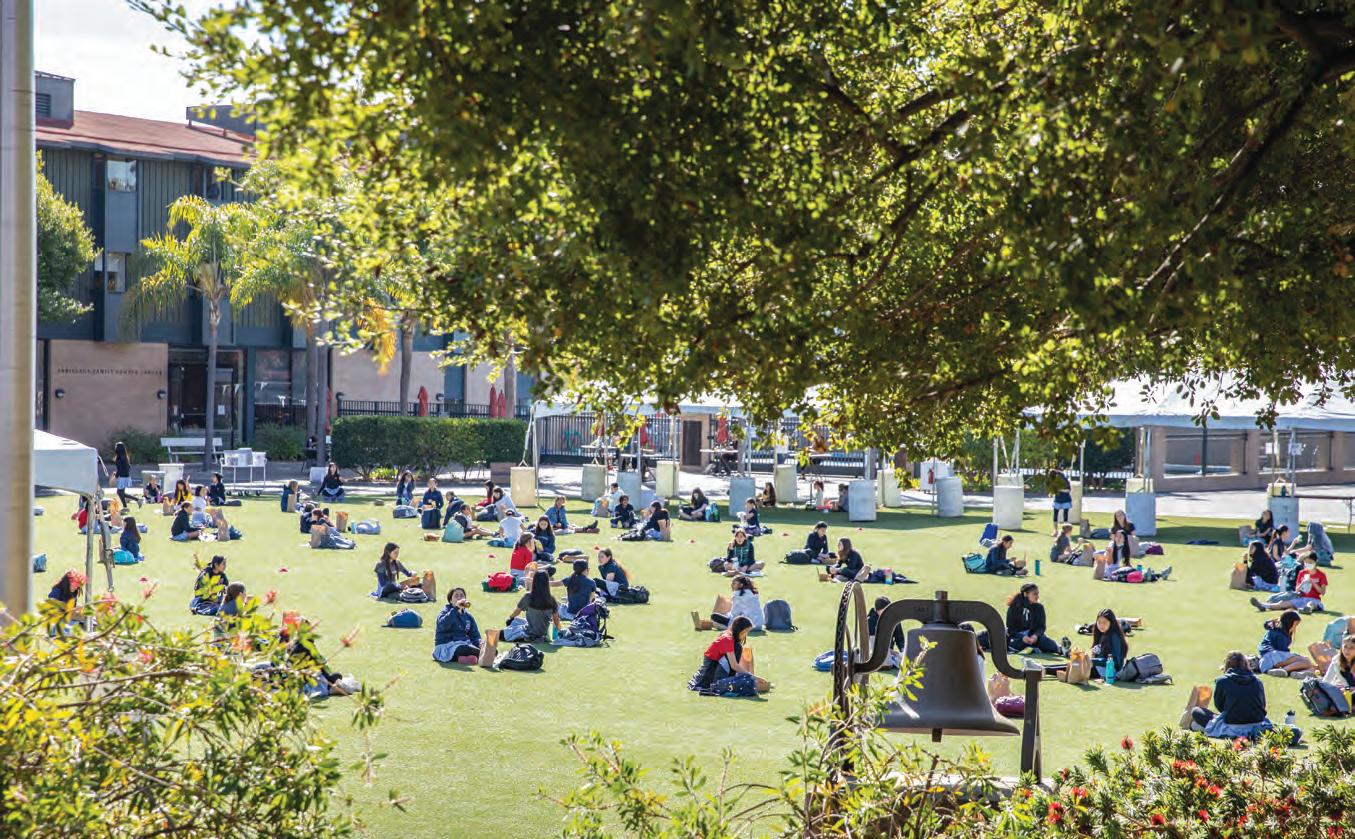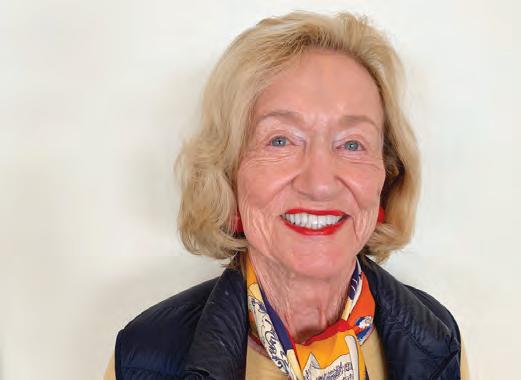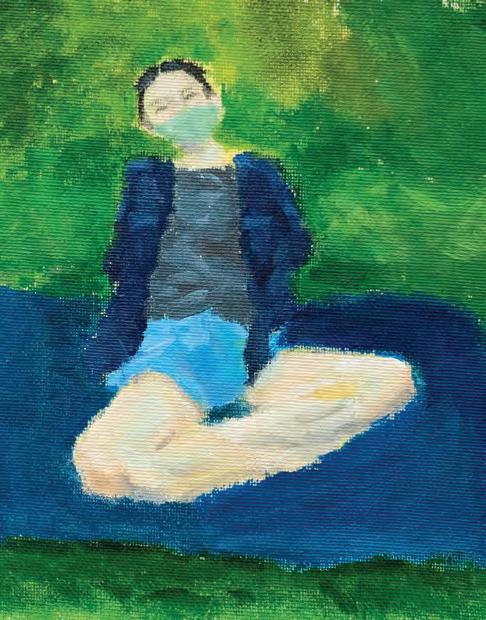
4 minute read
Global Week 2021 Global Health

In the midst of the worst pandemic in more than a century, this year’s Global Week theme resonated deeply. Students and community members listened with urgency to our guest speakers: doctors, public health experts, and academics. Despite the many unknowns that still lie ahead as the U.S. responds to this challenge, one by one, our guests expressed faith in our democracy and confidence in our public health system to be able to gain control over COVID.



Aramis Mendoza ’21 and Alana Stull ’21 introduce Dr. Ruha Benjamin, Professor of African American Studies at Princeton University
Racism and Inequity DR. RUHA BENJAMIN CHALLENGES STUDENTS TO CHANGE UNJUST POLICIES
The disproportionate impact of the pandemic on communities of color has highlighted institutional failures rooted in systemic racism and societal inequities. Several of our speakers addressed this injustice and its impacts. Dr. Ruha Benjamin, Professor of African American Studies at Princeton University, aptly acknowledged, “Racism is the deadliest virus.” She called upon students to change unjust policies and habits. “Every twist, coil, and code is a chance for us to weave new patterns, practices, and politics. Once we accept that we are pattern makers, the vastness of the problems we face will be their undoing.” Dr. Benjamin’s research focuses on the social dimensions of science, technology, and medicine, focusing on the way that race and racism structure the social world. She described how “racism distorts our ability to read reality accurately,” and that early scientists—including medical practitioners—legitimized these hierarchies. Sixth grader Gemma Kunnavatana asked why people have the instinct to harm or discriminate against others. Dr. Benjamin acknowledged the importance of this question and closed by asking the students, “What is our responsibility to change these patterns?”
Dr. Nahid Bhadelia, Medical Director, Special Pathogens Unit at Boston Medical Center and National Emerging Infectious Diseases Laboratories “Our zip code is becoming much more of a determinant of our health and our health outcomes than our genetic code.”
Dr. Megan Mahoney, Clinical Professor of Medicine in the Division of Primary Care and Population Health at Stanford University and Chief of Staff at Stanford Health Care

Dr. Jane McConnell ’81HA
Biology/Biotech/Climate Change Teacher at Castilleja Joanna Busza ’90

Associate Professor, Sexual & Reproductive Health at London School of Hygiene & Tropical Medicine Dr. Naima Bridges ’02

Obstetrician & Gynecologist and Assistant Chief at Kaiser Permanente
ALUMNAE PANEL Priorities and Principles of Women’s Health: A Global Perspective
Castilleja teacher, Dr. Jane McConnell ’81, moderated an engaging conversation with two alumnae who have pursued extraordinary careers in global health and women’s health. The panelists spoke about their work in global health, challenges they’ve faced, and of course, how their Castilleja education inspired them.
DISEASE AND IDENTITY Students Explore The Question: “What Is Global Health?”
Tiffany Crist-StudleyHA , Middle School Dean of Students, wanted students to understand that there are many perspectives to the question: “What is global health?” Taking a three-pronged approach and grouping into their “family” units, 6th, 7th, and 8th graders were assigned an infectious disease to explore, research, and evaluate. Our 6th graders conducted their research through the lens of their “Exploration” theme to understand the context and background of the disease. In 7th grade, students flexed their empathy muscles, using their “Identity” theme as a framework to understand how their assigned disease impacts people based on their identities. Students in 8th grade took a wider view, looking at the role of government, non-governmental organizations, and individuals in reducing the impact of disease. Finally, each family group presented their collective research, providing each student a chance to practice public speaking skills.
Civics Education:
A NATIONAL SECURITY IMPERATIVE TO BUILD RESILIENCE AGAINST DISINFORMATION
Suzanne Spaulding, Senior Advisor at the Center for Strategic and International Studies and Former Undersecretary of the Department of Homeland Security, spoke about the national security implications of the COVID crisis. She discussed how misinformation and disinformation have hindered our national response to the pandemic by creating mistrust in government, thereby weakening our national security. “The most effective disinformation campaigns exploit legitimate grievances and exacerbate pre-existing divisions; they don’t create these divisions. They tear at the sinews that bind us as a nation.”
Spaulding asserted that investing in civics education across the country is a “national security imperative” in order to build stronger public resilience to disinformation. “A reinvigorated civics education can remind us of the role we can all play and move our country closer to that more perfect union by continuing to work to be informed and staying engaged. This is our greatest source of strength, and national security and regaining that sense of common purpose is how we will overcome the challenge of COVID.”
While many high school students across the United States do not take U.S. Government or Civics until their senior year, all Castilleja students take this required class as 10th graders. Using an annotated U.S. Constitution, students not only gain a deep understanding of the structures and powers of national and state governments, they also work with Castilleja's librarians to evaluate the authority of sources when researching perspectives to include in student-led roundtables and debates on current issues.











